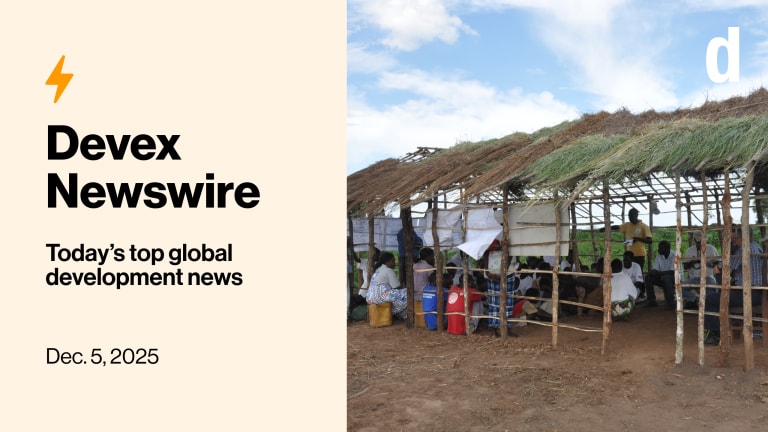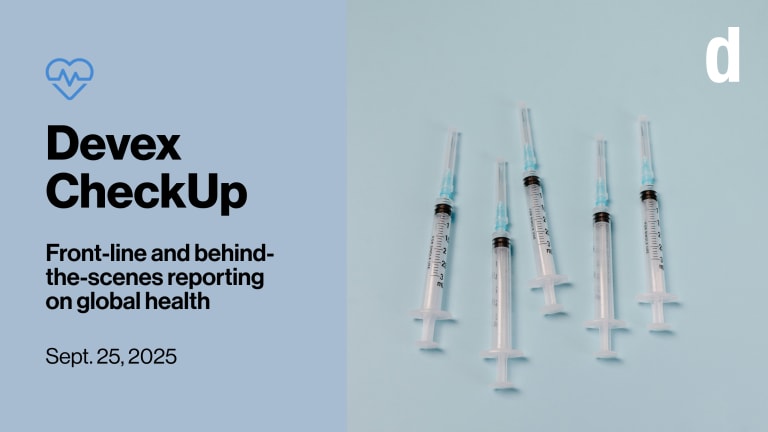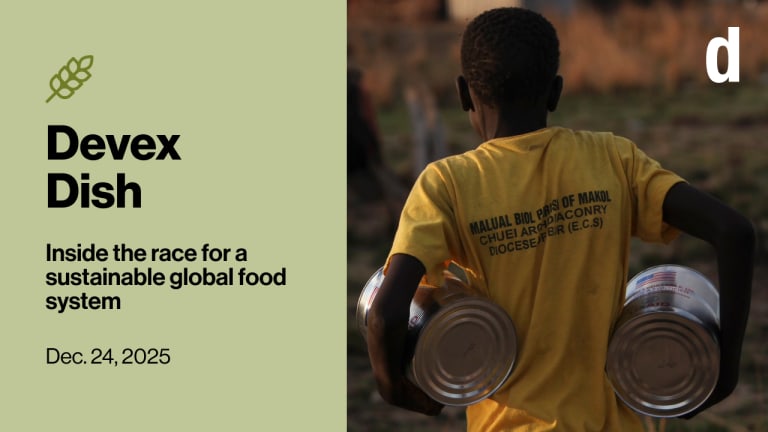Rich nations need to use development as a tool to prevent conflicts, a former U.S. Agency for International Development administrator said June 24.
J. Brian Atwood, who also chairs Devex's board of advisors, called this form of development assistance "sustainable prevention." He said more of this kind of development work was needed to complement work done in the wake of conflicts.
"My hope is that new leadership on the world stage coming from my country will lead us to a common definition of human security and a renewed commitment to development as prevention," said Atwood at the Gesellschaft für Technische Zusammenarbeit headquarters in Frankfurt am Main, Germany, as part of the Eschborn Dialogue 2009. "As a community of professionals, we cannot turn our backs on the vital need for our services in post-conflict situations. However, we should hope that policymakers would begin to see the advantage of a commitment to sustainable prevention through poverty reduction, the building of political and economic institutions, and the development of human capacity through education."
Atwood noted that investments in struggling economies not only benefit those countries, but the long-term security of rich nations as well.
"It is an investment in our own security to remove subsidies from our agricultural products and to enable developing nations to export commodities to our markets. It is an investment in our own security to support growth strategies, as well as reform, from the [International Monetary Fund] and World Bank," he said. "International support for endangered economies from the IMF must place much more emphasis on development and much less on protecting foreign investors and creditors. Let the risk insurance industry do that job."
Atwood's view – that development needs to be as much an investment in prevention and long-term security as it is an investment in picking up the pieces in the wake of a crisis – has become increasingly popular in Washington since President Barack Obama took office. Many clamoring for broad reform say this type of "development as investment" is what is needed to make USAID more effective.
However, within the Washington power establishment, there has not been much movement toward this kind of reform. If anything, the Obama administration has hinted that its priorities will be more of the same: a focus on health programs with more specific goals toward improving child and maternal health.
Also, the aid reforms that have been publicly introduced in the U.S. Congress do not address the development-as-investment concept. They only add personnel and money for USAID to continue many of its existing practices.








